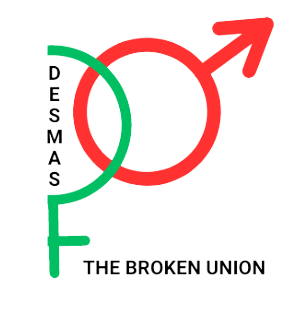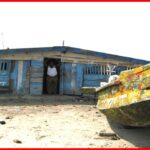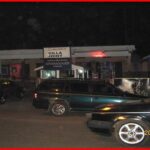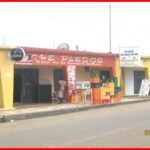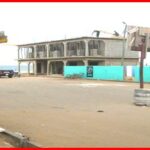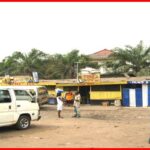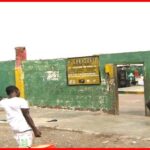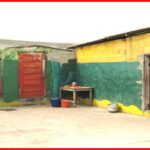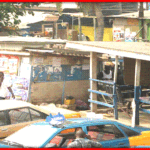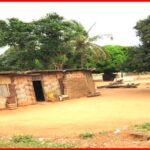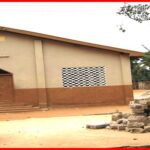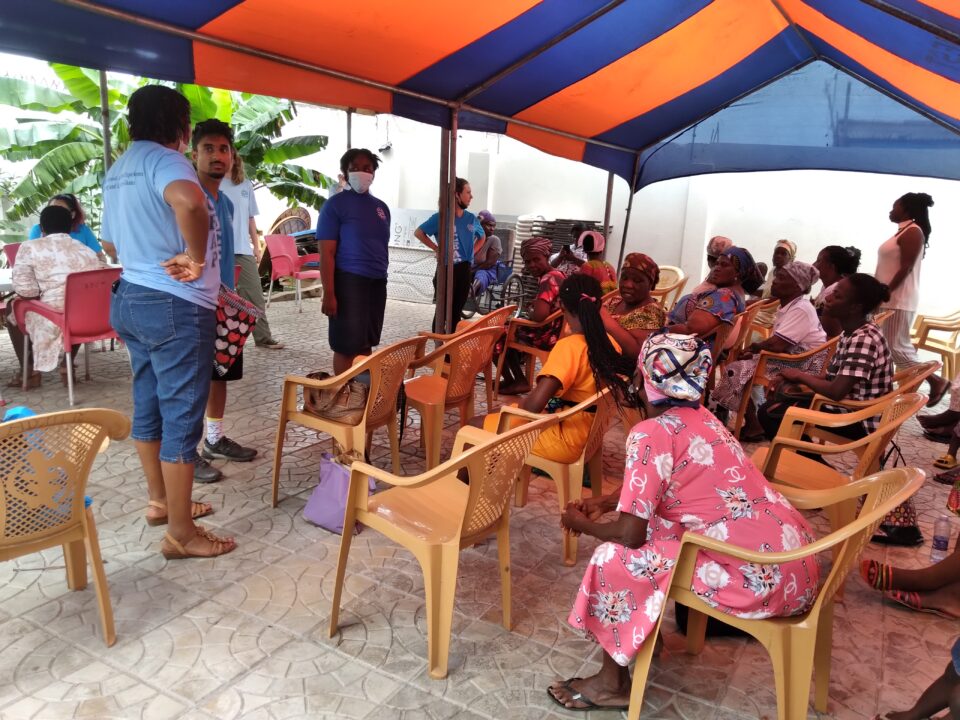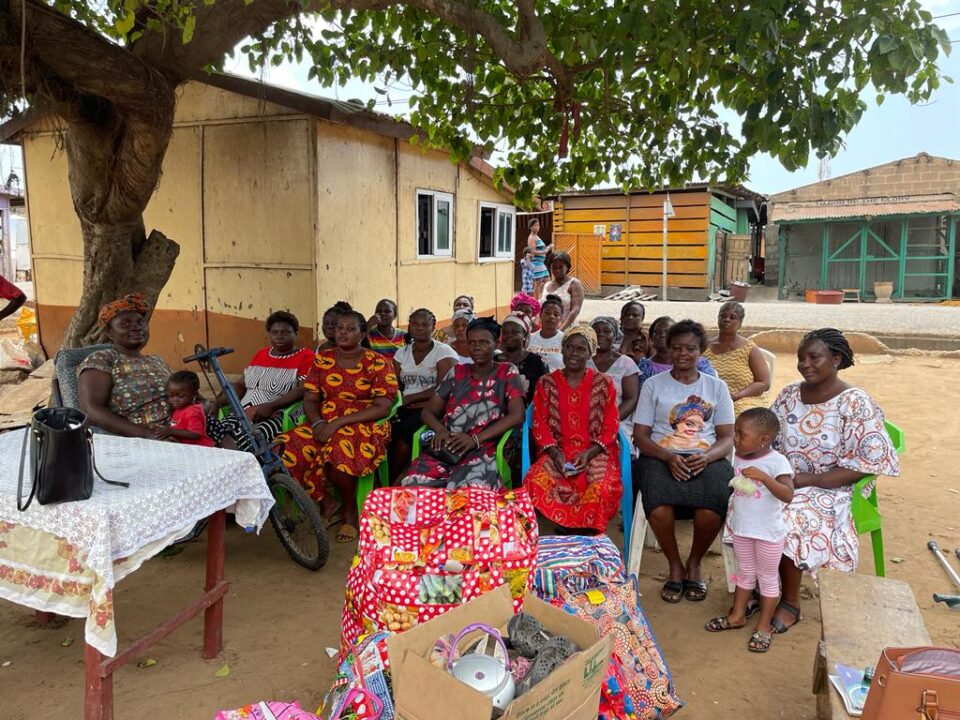Child Commercial Sex Survey in Ghana

Sexuality and Adolescent Reproductive Health
July 3, 2023
Women’s meeting and donation of clothes
July 3, 2023Child Commercial Sex Survey in Ghana
International Needs-Ghana: This local chapter of an International NGO engaged the services of Desmas Consultancy Services to conduct two baseline surveys on commercial sexual exploitation of children in some indigenous communities in the capital city of Ghana, Accra. The following are a summary and a feature article.
COMMERCIAL SEXUAL EXPLOITATION OF CHILDREN IN 12 COMMUNITIES IN THE GREATER ACCRA REGION OF GHANA.
Abstract
In response to suspected incidence of commercial sexual exploitation of children (CSEC) or child sex work in various parts of the capital city of Ghana; Accra, a baseline survey was conducted in twelve communities in the Greater Accra Region. There were 9 indigenous ‘Ga’ communities and 3 others. Only qualitative instruments were employed; face-to-face in-depth interviews and focus group discussions using interview guides were used to elicit information from various stakeholders. Results indicated there are different levels of CSEC in all 12 communities. In the 9 traditional Ga indigene communities, there is the kind of socio-cultural environment that predisposes the girl-child to community sexual exploitation resulting in teenage pregnancies and early motherhood which is rewarded with lavish outdooring ceremonies. The sexual exploitation is not mainly for commercial gains on the part of the victims who usually are not engaged by a third party but for basic economic sustenance. Madina, a non-indigenous ‘Ga’ community exhibited self-indulgent CSEC akin to that of Labadi and Osu. Nima presented an interesting divergent situation from all the communities due to its peculiar Islamic religious influence which complicates not only the legal age for consensual sex but the whole concept of CSEC as the girl-child is considered mature and ready for marriage and motherhood upon the onset of first menses and could be involve in legitimate sexual relations acceptable in the community. In Korle-Wuoko and Timber market, there is evidence of sex worker ‘seater’ settlements where some of the girls are trafficked and or lured by third parties into some bondage type of child sex work. Various recommendations were proposed for consideration in curbing the menace with emphasis that any intervention should not be seen as rewarding irresponsible parentage.
Key Words: Child Sex Work, In-depth Interview, Focus Group Discussions, Qualitative, Commercial Sexual Exploitation of Children.
COMMERCIAL SEXUAL EXPLOITATION OF CHILDREN IN SOME INDIGENOUS COMMUNITIES IN THE GREATER ACCRA REGION OF GHANA
In Context, Concept and Challenges
Commercial sexual exploitation of children (CSEC); one of the worst forms of child labour is defined as ‘sexual abuse by an adult and remuneration in cash or kind to the child or a third person or persons’. The child is treated as a sexual and commercial object. The act includes the prostitution of children; child pornography; and other forms of transactional sex where a child engages in sexual activities to have key needs fulfilled such as food, shelter or access to education. It also includes forms of transactional sex where the sexual abuse of children is not stopped or reported by household members due to benefits derived by the household from the perpetrator. It also potentially includes arranged marriages involving children under the age of 18, where the child has not freely consented to marriage. CSEC constitutes a form of coercion and violence against children and amounts to forced labour and a contemporary form of slavery. United Nations statistics show that about 1.8 million children worldwide are involved in commercial sexual exploitation.
Another definition within the context of rights is ‘ involving practices by which a person, usually an adult, achieves sexual gratification, financial gain or advancement through the abuse or exploitation of a child’s sexuality by abrogating that child’s human right to dignity, equality, autonomy, physical and mental well-being ’. It includes among others trafficking, sex tourism, mail-order-bride trade, stripping, battering, incest, rape and sexual harassment. This definition reflects a continuum of abuse that includes child sexual abuse, child sexual assault and the commercial sexual exploitation of children (CSEC). Thus CSEC covers a broad spectrum of child sexual abuse with or without benefit accruing to parties involved. This broad definition confuses the issues to the extent that it impacts negatively on an understanding of the concept of CSEC by most development workers. Usually CSEC erroneously connotes child sex work (CSW) or prostitution due to the ‘Commercial’ in the terminology. In Latin America where the terminology originated, CSEC could be said to connote child sex work in its various forms but in Ghana, the situation is very subtle and complex. Thus interventions are usually not appropriate resulting in outcomes that cannot be measured or at best defeats the original purpose of the intervention. There is the need for a dichotomy of the concept of CSEC into child sex work or prostitution and child sexual abuse both of which are child sexual exploitation.
It is appropriate to put sexual exploitation in the context of the general sexual exploitation of females to appreciate the complexicity and vulnerability of the child in relation to issues of rights. Adult women of all categories are sexually exploited world-wide but this is usually confused with issues of consent which could be blurred in power play conditions such as it is with employer and employee situations. It is known and even accepted that many women have to offer sex for jobs, pass exams and many other situations where men are in positions of power. Some married women are even known to offer themselves to employers for jobs, promotions or some opportunity and sometimes with the full knowledge and approval by husbands! George Sidney Abugri’s Letter to Jomo entitled: Money, Sex, Justice and a Big Pothole, in the Daily Graphic edition of 13th August 2010 page 7, writes……that female job seekers must pay with sex and many are really doing this, sometimes servicing several male predators in management positions in the same organization to be able to seal a deal. A story is also told of a 30 + old graduate lady with a fiancé was lured to quit her job to join a friend’s sole proprietor type consultancy firm only for the friend to take her out of the country, got her pregnant, forced her to undergo her first abortion and manipulated her to adopt a birth control regime to render weekly sex. Thus adult educated females fully aware of their rights are exploited sexually in exchange for jobs, money, exam pass marks in tertiary institution etc. This being the situation in a country where the legal system is nothing to write home about and without any targeted policies and legal framework to protect women sexuality, children who are ignorant about their rights, homeless and hungry are very easy preys for sexual exploitation. The issue of ‘exchange’ which is reward in some form is fundamental in every sexual relation even if it is consensual and mutually beneficial with the male partner usually being the one parting with something and or providing some opportunity such as employment in exchange for sex. It is the violation of rights which is the cross cutting factor in any exploitative sexual relationship including CSEC. The Swedish criminalization of the purchase of sex by men which impacted positively in reducing prostitution was based on the concept that purchase of sex was violence against women (VAW). It argued that men who in general are more financially endowed due to their dominant position in society were abusing women (prostitutes) by buying their bodies for sex. That is privileged men were abusing the prostitute’s human right to dignity, equality, autonomy, physical and mental well-being due to their comparative advantage in terms of financial resources. The reported positive impact on curbing prostitution in Sweden however was short lived as the decline in patronage caused the prostitutes themselves to lower charges and went underground to assist their clients (men) to buy their bodies for sex!
In Ghana, the two types of CSEC could be discerned with child sexual abuse being the most common while child sex work or prostitution, the exception which the West Africa AIDS Foundation (WAAF) in their study in 1995 put at 2%. The child prostitution could further be categorised into self indulgent child sex work akin to the know adult female type of sex work where the child freely and independently engages in sex work. There is also the bondage type of child sex work where the child has been engaged by an adult to practice sex work. Any intervention to address CSEC must make the distinctions and formulate appropriate strategies to achieve the desired outcomes. Studies conducted in parts of Accra clearly unravelled these types of CSEC with very interesting findings of child sexual exploitation That have economic, socio-cultural and religious roots with justifications acceptable in the different communities.
There is what could be defined as community sexual exploitation of children (CoSEC) where there is a conducive socio-cultural, economic and religious circumstances peculiar to certain communities that predispose the girl-child to ‘legitimized’ sexual exploitation resulting in teenage pregnancy and early motherhood which is adored with lavish outdooring ceremonies. The study noted that economic challenges promote dependence on men for survival as the inhabitants are low income earners. These results in multiple informal marriages with parents living apart culminating in children living with grandparents predisposing the girl-child to sexual promiscuity and very little attention paid to education. The sexual exploitation is not that of commercial gains on the part of the victims who usually are not engaged by a third party but for basic economic sustenance. In communities where single parentage abound, there is a general break down of family ties and values which coupled with inadequate accommodation space, leads to minimal watch over children predisposing them to many social vices. Early motherhood usually results in single motherhood which has been documented as a sex work predisposing factor. This is confirmed by an ILO Press release (1998) that for single mothers with children, sex work is often a more flexible, remunerative and less time-consuming option than factory or service work. O’ Donnel (2002) stated that “Certain demographic groups are most at risk of becoming involved in this type of work (sex work) at any time especially single mothers”. In other communities based on religion, the girl-child is considered mature upon the onset of her menses and could be betrothed to a man and engaged in sexual relations; the legal age for consensual sex notwithstanding. Interestingly however these teenage girls whether single mothers or sexually active promiscuous teens that are dependent on men for economic survival do not necessarily progress to full time adult female sex workers. Studies conducted by some authorities did not list indigenes of these communities as one of the ethnic groups predisposed to sex work in Ghana. This therefore suggests and confirms the believe that sexual exploitation of children and the dependency on men for economic gains is based on certain contextual factors inherent in the communities which have become a way of life for the girl-child and inhabitants.
There are also the self indulgent and bondage child sex worker where the child is under the control of an adult man or woman. Studies have found that in both cases, the child is usually not living with biological parents. However in the bondage type, a relative such as an aunt or even an elder sister in a more privileged situation such as in the city subtly subjects the child to sex work. In certain situations the adult relative may herself be engaged in sex work. Others are destitute or displaced girls such as female head porters known as ‘Kayayei’ who may be engaged as chop bar operators or waitresses by owners usually adult women who promote them for men for transactional sex. The self indulgent and bondage types of child sex work could be found around Niki’s spot in Madina and Timber market at Korle-Wuoko respectively. In an article published in the Daily Graphic of Friday December 2011 entitled Children in Conflict with Law-Their connection with broken homes, Plan International in partnership with two other child rights organizations in Ghana in a report of a juvenile Justice Project established that children in conflict with the law mostly come from broken homes or in an environment where both parents are not living together. This sums up CSEC predisposing factors in Ghana aside the socio-economic, cultural and religious factors.
There are various challenges that militate against addressing CSEC in the country. The legal age for consensual sex being 16 years conflicts with children’s legal age of below 18 years. Thus children 16-17 could be involved in legitimate sexual relations leading to teenage pregnancies and motherhood without it being labeled exploitative as it is culturally acceptable in certain communities. Similarly albeit legally incorrect, certain religions accept the onset of menses as an indication that the girl is sexually mature and is within communities where such religions are practiced engaged in sexual relations which could lead to teenage pregnancies and motherhood. In all of these there are health implications as the teenage girl may not necessarily be physically, psychologically and mentally mature for sex and motherhood. The general lack of law enforcement coupled with a complex socio-cultural, economic and religious environment has created a situation where children the most vulnerable among us do not have any significant targeted State policies that specifically seeks to protect them all of the signed national and international child right protocols and conventions notwithstanding. Indeed Ghana is touted as the first country worldwide to have ratified the United Nations (UN) convention on the rights of children and yet this has not translated into visible pragmatic policies and interventions to protect the rights of children.
Author: Gaisie-Ahiabu, .E; Founder of the LNGO: DeSMAS & Final Year PhD student at the Regional Institute of Population Studies (RIPS) of the University of Ghana. Email: eldesmas@yahoo.com
Women In Need (LNGO): Child Commercial Sex Survey in Ghana consultancy undertaken by Desmas Consultancy through proposal development for NGO to Ghana Aids Commission (GAEC) and implementation following a successful grant award.


Child Commercial Sex Survey in Ghana:
Executive Summary
A national survey was undertaken to study child commercial sex work technically referred to as commercial sexual exploitation of children (CSEC), the characteristics of the victims, the perpetrators and the social networks within which it thrives. The studies also sort to identify the locations of the trade in the various regions. A comprehensive desk review of all studies on the subject prior to the field study was undertaken. The review involved the identification of secondary data sources and stakeholders that can contribute to the study. Prior to field data collection, the study undertook direct participant observation, in-depth interview of key informants and mapping out of areas of participants activities. The study used mainly face-to-face in-depth interview using interview guides for all participants while recording. Purposive and snowballing sampling techniques were used with a sample size of 10 participants of each target group per region. Interviews were conducted in the dialect of the participants and then transcribed verbatim before translated into English. Results indicate that child commercial sex work is rife in the country and could be found in all 10 regions with concentration in the more cosmopolitan cities such as the regional capitals and also certain specific communities such as fishing, mining, border towns and city slums. Causative factors were mainly parental irresponsibility, lack of law enforcement due to irresponsible socio-cultural and political environment and poverty. The study recommended the criminalization of buying sex from minors as adult clients were found to be the main perpetrators and the children victims. That parents needing assistant with childcare be assisted through various targeted interventions but also held culpable when found to be negligent. That district social welfare departments be resourced to monitor non biological children living with other relations especially in vulnerable communities as cited. Interactive efforts by all stakeholders including government are needed if the menace is to be tackled effectively.
Key Words: Child Commercial Sex Work, In-depth Interview, Commercial Sexual Exploitation of Children
Focus Group Journal: an initiative of Desmas Consultancy Services.
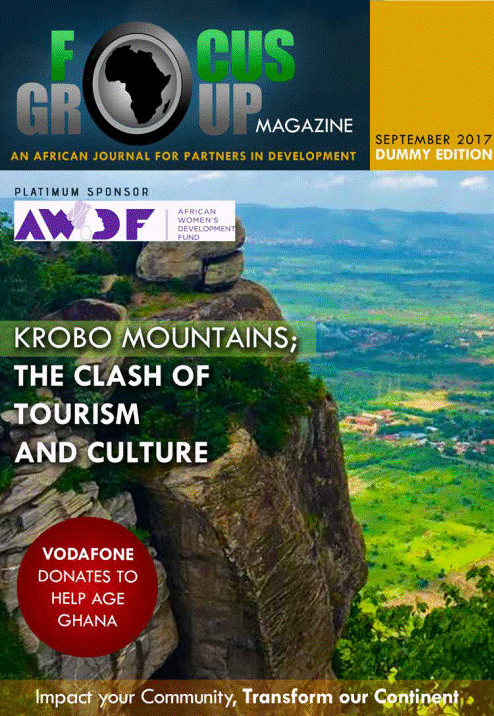
Focus Group is a development journal that has been conceived to provide an academic-like publication for development agencies to articulate their programs, achievements, needs and challenges. It is intended to be a multi-lingual nonprofit African Development Journal focusing on the development agenda and processes of the continent, highlighting the activities of the main development players and exposing the continent’s development challenges. It shall be an online and hard copy publication to be distributed freely to offices of all targeted development institutions, government bodies, civil society organizations, embassies etc.
It would contribute to resolving development challenges especially those obscured in marginalized communities such as rural areas by providing exposure and empowering right holders to demand accountability from duty bearers (government and others).
Focus Group has the potential to better address development challenges due to being a common platform for various development partners to act as peer reviewers of each other. Current print media do not seem to afford various development partners such as civil society organizations, international development partners, government, corporate bodies etc an opportunity to be informed concurrently and review activities of peers in the development process. Anecdotal evidence points to duplication of development projects and lack of empirical evidence to support claims of various development activities. The journal would also act as evidence to be cited by development agencies to authenticate their claims.
Projects Related Publications:
1. Gaisie-Ahiabu E. (2020). Child Sex Work in Accra: Drivers, Characteristics and Coping Mechanisms (PhD. Thesis).
2. Gaisie E. and Ahiabu R. K. A. (2018). Female commercial sex as violence against women: A case for its decriminalization. National HIV and AIDS Research Conference. Ending AIDS: Re: Thinking Practices for Maximum Impact. Accra International Conference Center 8th -11th May <2018 class=”br”>
3. Child Protection in Boarding Schools in Ghana: Contemporary Issues, Challenges and Opportunities. Book authored by Prospera Dzang-Tedam and Elsie Gaisie-Ahiabu and published by Kirwin Maclean Associates Ltd, 4 Mesnes Green, Lichfield, Staffs, WS14 9AB, United Kingdom (2017).
4. Gaisie. E (2007). Assessing the health problems of sex workers: A case for its legalization or otherwise in Ghana. (Mphil Thesis).
5. Ralph Ahiabu and Elsie Gaisie (2007). Socio-cultural factors that underpin the HIV/AIDS pandemic in Africa. Paper presented at 1st International Africa HIV and AIDS Conference. An Africa Life Aid Project. ‘Strategizing Interventions Towards the Elimination of HIV and AIDS in Africa. La Palm Hotel, Accra-Ghana. 28th – 30th Nov. <2007 class=”br”> 6. Ahiabu R.K.A, Gaisie. E and Ofori-Ayeh. L. (2004). Empowering women against HIV infections through vaginal microbicides. (Poster presented at National HIV/AIDS conference in Accra).
7. Mensah. W, Gaisie. E, and Ahiabu. R.K.A (2003). Studies of socio-economic impact of volunteerism in Ghana . A United Nations Volunteer / UNDP sponsored Project.
8. Gaisie E. (2003). Deprived single mothers and the HIV/AIDS scourge. The Chronicle News Paper (Ghana) 12 June 2003 pg 2 & 6.
9. Gaisie E. (1996). Prostitution in Tema – Ghana. BA(Hons) Dissertation
